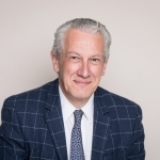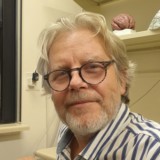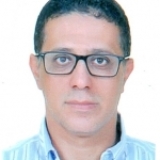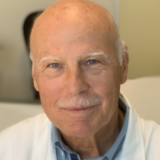Neurology & Africa Task Force
Neurology & Africa Task Force
In 2008, the Task Force Neurology & Africa was established as a cooperation of former EFNS Education Committee members and WFN Africa Committee officers. Since then, the African Academy of Neurology (AFAN) was found and is now an equal partner in teaching Neurology on the African continent.
The Initiative is not only supported by EAN, AAN and WFN, who are the core supporters, but also by several (changing) Neurological Associations and sub-specialty societies such as WHO, IBRO, MDS, WSO, ILAE, to name a few.
The overall goals of this Task Force are:
- To foster relationships to neurologists and neurological societies and to teach residents in neurology and neighboring specialties in the countries of Sub-Saharan Africa by organising the annual Regional Teaching Course (RTC)
- To partner with other associations and societies interested
- To organise a Special Session dedicated to Neurology and Africa at the annual EAN congress
Benefits for African Neurologists
from EAN corresponding institutional member countries or who are residents of low and lower-middle income countries from sub-Saharan Africa
AFAN and PAUNS are eligible to nominate one representative for each EAN Scientific Panel.
Involving the representatives in the scientific and educational work of the Scientific Panels shall contribute to foster knowledge exchange and raise awareness of activities for mutual benefit.
For further information please contact the EAN Scientific Department (scientifc(at)ean.org).
African neurologists in training from corresponding institutional member countries who are RRFS/Full members are eligible to apply for the EAN Spring or Autumn School, as well as Science School.
This is also open to residents and neurologists of low and lower-middle income countries from sub-Saharan Africa.
In addition, application for a travel grant of up to € 500,- is possible (4 per school are made available).
Further information can be found on the EAN Website: https://www.ean.org/learn/educational-events
African neurologists in training from corresponding institutional member countries who are RRFS/Full members are eligible to apply for the clinical fellowship for financial support of 6-12 weeks in a European department of neurology (https://www.ean.org/learn/fellowships-and-funding/clinical-fellowship). Up to 12 weeks are also open to residents and neurologists from low and lower-middle income countries from sub-Saharan Africa.
Further information can be found on the EAN Website: https://www.ean.org/learn/fellowships-and-funding/clinical-fellowship.
African neurologists in training from corresponding institutional member countries who are RRFS/Full members are eligible to apply for the Mentorship programme:
Further information can be found on the EAN Website: https://www.ean.org/learn/mentorship-programme/mentees
African neurologists in training from corresponding institutional member countries who are RRFS/Full members are eligible to participate and register for free to virtual Masterclasses & online webinars
Further information can be found on the EAN Website: https://www.ean.org/learn/eeducation
African medical students from corresponding institutional member countries who are EAN Student Members are eligible to apply for the Student Teaser fellowship for financial support a stay outside the city of residence and ideally in a European neurological department.
Further information can be found on the EAN Website: https://www.ean.org/learn/student-teaser-fellowship
This may surprise you, but there is not even a textbook on AIDS in Africa, 27 years after the epidemic broke out. The same applies to tuberculosis and malaria, and many other diseases that are common in African countries, William Howlett tells us by email from Tanzania.
Howlett is Irish, but has spent much of his professional life as a physician and educator for patients and medical students at the Kilimanjaro Christian Medical Centre in Tanzania. He soon discovered that the only available textbooks were written for medical students in rich Western countries.
Standard textbooks of internal medicine and neurology are of course helpful, but they do not cover all the needs for medical knowledge in Africa. For instance clinical practice in an African everyday setting is not covered in Western medical literature. Nor are certain neurological diseases that are particularly widespread in Africa. I decided to create a compendium for my students here, and this has gradually developed into a textbook, Howlett says. Please continue here.
Chairs

Co-Chair

Co-Chair
Members

EAN Representative

EAN/AFAN Representative
AFAN representative

AFAN representative
AAN representative
IBRO representative
ILAE representative
MDS representative
MDS representative

PAUNS representative


